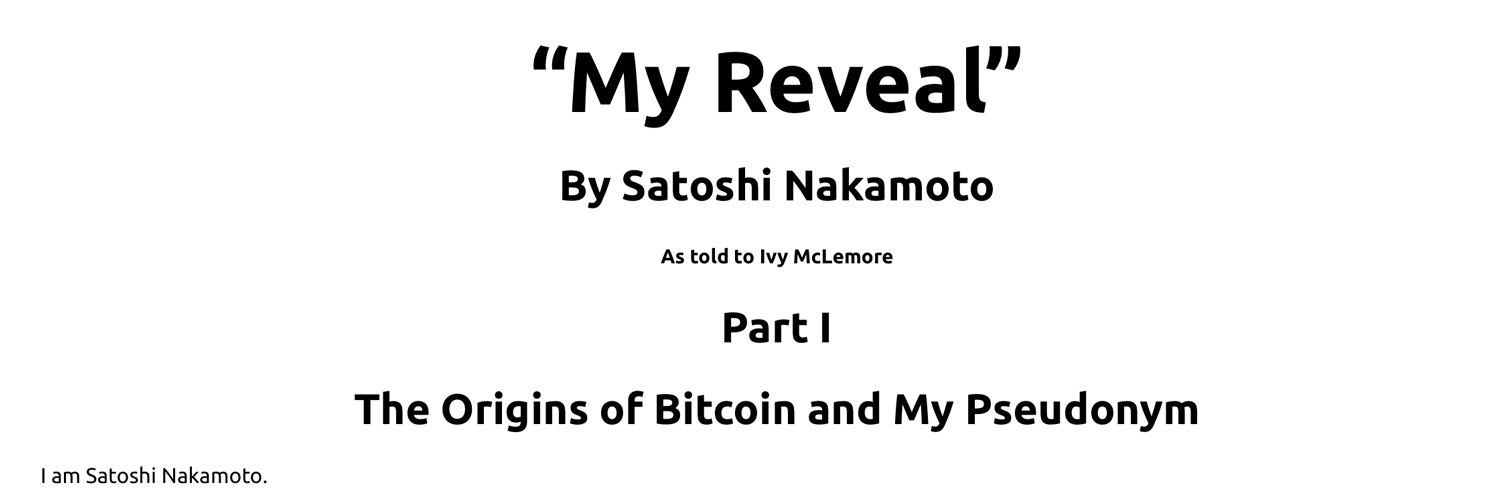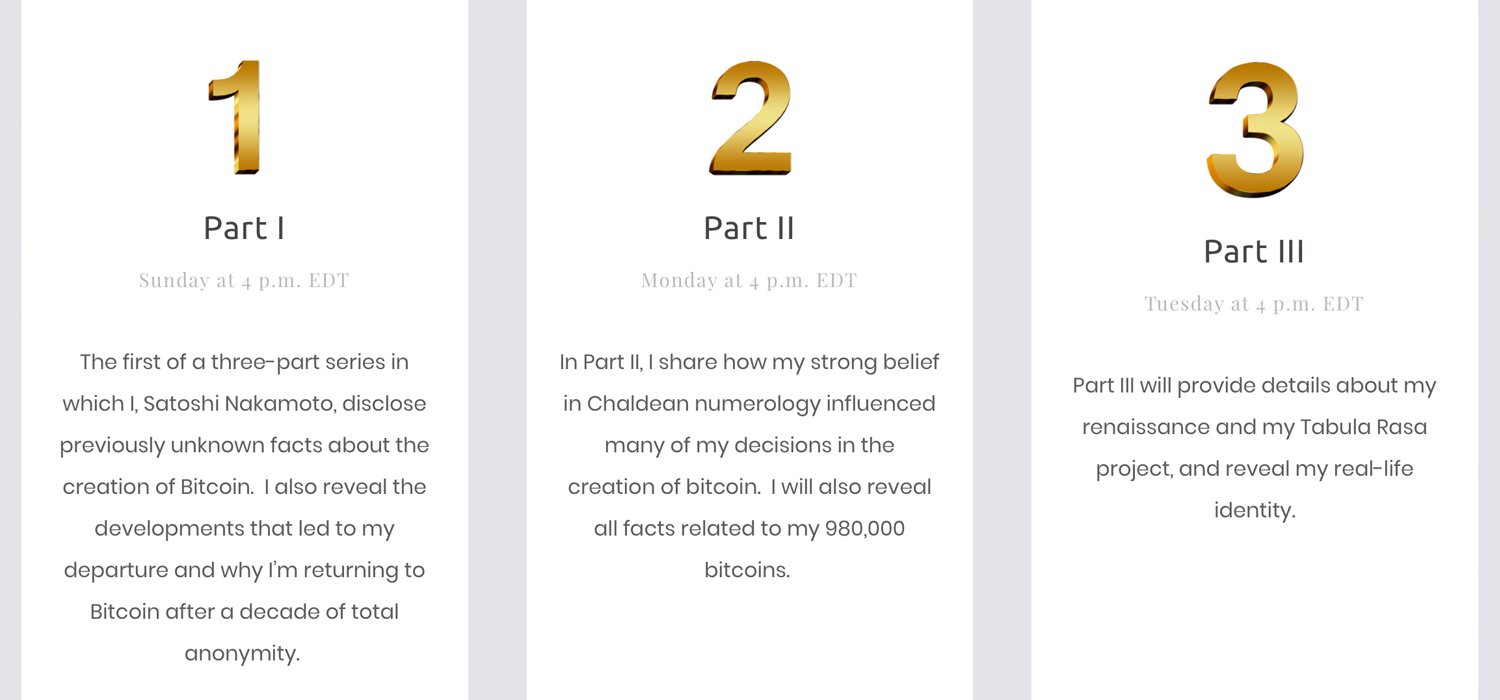
Rakuten, the “Amazon of Japan,” announced the launch of its new crypto exchange platform Monday, August 19, offering spot trading of crypto assets via a dedicated smartphone app. The e-commerce giant has been crypto-friendly for a while now, experimenting and investing in crypto payment systems since at least 2014, but with the launch of the wallet exchange service, Rakuten Bank users are now able to buy, sell, and exchange BTC, BCH, and ETH, as well as utilize fiat off-ramps to personal bank accounts. Other formidable forces in e-commerce are working hard to jump on board the crypto train as well.
Also Read: Another Self-Proclaimed Satoshi Fails to Sway Crypto Community
Optimism for Crypto
“Rakuten” means “optimism” in Japanese, and with all the effort the e-commerce leader has been pouring into blockchain and crypto development over the past years, that positive moniker makes sense. With a market cap of $14.5 billion, over 17,000 employees worldwide, and $10 billion in sales as of May, Japan’s internet commerce behemoth is ubiquitous in the land of the rising sun, and elsewhere.
In a press release from Tokyo yesterday, Rakuten Wallet Inc., a subsidiary of Rakuten Group, announced the start of its long-awaited crypto trading app and exchange service:
Through the smartphone app, customers can make transactions for crypto asset trading accounts, such as depositing/withdrawing Japanese yen and depositing/withdrawing crypto assets, 24 hours a day, 365 days a year…Three types of crypto assets can be traded: Bitcoin (BTC), Ethereum (ETH), and Bitcoin Cash (BCH).
The app features a multisig-based “cold wallet” for user funds, and “There are no fees for opening or managing an account, purchasing or selling crypto assets, or depositing money,” according to the press release. While the company uses the term “cold” in describing the wallet, it is important to note that the actual meaning here is simply offline storage, and as such security is not solely in the hands of the account holder.
Application Process: Convenience In, Privacy Out
For those applying for a Rakuten Wallet account, the process is pretty straightforward. “Customers who already have a bank account with Rakuten Bank will be able to easily open a Rakuten Wallet account simply by entering the required information on the online application form,” the press release confirms.
However, privacy-minded crypto users may find the application off-putting. Japan is arguably the world leader in crypto regulation and adoption, with rigorous KYC and AML protocols implemented industry-wide thanks to Japan’s FSA (Financial Services Agency). The veritable dating game-style personal quiz prior to signing up is reflective of this reality.
Applicants must answer several questions even after opening a Rakuten Bank account including private details relating to one’s job, purpose for opening the account, and income. They must also state how many years they have been active in the crypto space. This is in stark contrast to private, P2P exchanges like local.bitcoin.com, where the only thing needed is an email address.
Rakuten’s Push Echoed by Amazon, Others
Establishing the Rakuten Blockchain Lab in 2016 after an earlier investment in Bitnet, a wallet/payments software firm in 2014, Rakuten is no stranger to crypto. In terms of the breakneck speed proliferation of Japanese regulations and crypto adoption, 2014 seems like light years ago to most. The Tokyo-based company is not alone, though, with other movers and shakers in the industry having also been putting in the time and research, and now seem to be making plans to jump on board with similar projects.
An official patent document from May reveals that Amazon is researching Merkle Tree solutions to proof-of-work challenges for unknown applications. Though Amazon does not directly accept crypto payments like Rakuten’s American site does, via the integration of the Bitnet portal, similar developments may soon be in the works for America’s retail juggernaut. Already the Amazon Coin digital currency is a reality.
Rakuten’s CEO, Hiroshi Mikitani, announced in early 2018 that the company was working on its own crypto token, “Rakuten Coin” to be integrated with the extremely popular Rakuten points system in Japan. Currently these points can be exchanged for bitcoin via the Japanese site.
Amazon has further created a stir in the media in past years by buying up crypto-related domain names such as amazoncryptocurrency.com, amazoncryptocurrencies.com, and amazonethereum.com. While this could be simple brand protection, based on the company’s recent research and investments, real speculation does seem warranted. Especially considering that other companies on similarly herculean tiers of mega financial success like Walmart, Facebook, and Google are all investigating and experimenting with blockchain and crypto as well.
Japan Still Skeptical of Exchanges
Though the Rakuten announcement is big news for crypto enthusiasts in Japan, some remain skeptical. With massive losses of funds at Mt. Gox, Coincheck, and most recently Bitpoint, customer confidence in Japan-based exchange services has suffered. Even lesser known issues relating to regulatory changes have left a sour taste in the mouth of many. Tokyo-based exchange Bitflyer, for example, froze user accounts in 2018 with no clear notification, citing “general maintenance” and the need to comply with official regulatory audits. Some users had crypto frozen on the exchange for weeks, with little to no assistance from customer service.
Rakuten’s Positive Push
Japan’s troubles of the past notwithstanding, Rakuten Wallet is pushing forward, with its Android app already available and an iOS implementation expected sometime in September. The service is set to be available 24-7, 365 days a year, except for maintenance periods. Fees only apply for withdrawals of Japanese yen and crypto assets. According to the press release “The app also features many useful functions that allow customers to effectively manage their crypto assets, such as confirmation of assets deposited in Rakuten Wallet, the purchase and sale of crypto assets, and real-time chart rate confirmation.”
The optimistic foray into crypto is perhaps to be expected from the group that is already an online mall, credit card company, Japan’s largest online bank, and owns an actual baseball team. With Rakuten riding the crypto wave in the East, and spreading integration worldwide, it can’t be too long until other giants follow suit.
What are your thoughts on Rakuten’s announcement? Let us know in the comments section below.
Images courtesy of Shutterstock, fair use.
Did you know you can buy and sell BCH privately using our noncustodial, peer-to-peer Local Bitcoin Cash trading platform? The Local.Bitcoin.com marketplace has thousands of participants from all around the world trading BCH right now. And if you need a bitcoin wallet to securely store your coins, you can download one from us here.
The post ‘Amazon of Japan’ Rakuten Launches Crypto Exchange Service appeared first on Bitcoin News.
Read more: news.bitcoin.com

Another person has attempted to claim the title of Satoshi Nakamoto, the creator of Bitcoin. According to a blog post published on August 18, this new person aims to expose his “real-life identity” through a series of written memoirs. The final ‘reveal’ will allegedly give the public the true answers to the decade long mystery. Despite the attempt so far, the cryptocurrency community is not buying the story and the huge effort stemming from the website, Satoshi Nakamoto Renaissance Holdings, has been quite feeble. Some community members are not pleased with some elements of the story either.
Also read: Bitcoiners Brace for More Performance Art and Another ‘Satoshi Reveal’
Another Person Hopes to Convince the World He’s Satoshi With a Few Blog Posts
The latest person to claim to be Satoshi had published a slew of press releases explaining that he would be publishing a series of posts leading to the ultimate reveal. News.Bitcoin.com reported on the story when the press release came out and explained how most people assumed it was a marketing tactic to get people’s eyes on something else. It still might be a marketing effort or ruse of some sort, but the person truly attempts to claim the Satoshi Nakamoto monicker. In addition to the declaration, the person wrote a 3,300-word blog post about the origins of Bitcoin and his pseudonym. The post says it was written “as told to Ivy McLemore,” the PR team behind the so-called ‘reveal.’ It was also edited a few times since it was published at 4 p.m. EDT, when the word “cyberpunk” was changed to the word “cypherpunk” on two occasions. The blog edit was a pretty foolish mistake as the two words have different meanings.
 The post was published at 4 p.m. EDT on Sunday, Aug. 18, 2019. It was also edited multiple times and the original can be seen on Archive.org.
The post was published at 4 p.m. EDT on Sunday, Aug. 18, 2019. It was also edited multiple times and the original can be seen on Archive.org.
The so-called creator of Bitcoin said he’s always been a believer in freedom and that’s why he began the blockchain journey. In the post, he explained that Hal Finney was his “closet ally and mentor” and the technology was not designed overnight. “Bitcoin was created through circumstantial requirements, but its current exposure cannot be attributed to design,” he noted. The author then veered off into a tone that’s similar to the Australian Craig Wright’s recent blog posts. The new Satoshi claimant said that the creation of Bitcoin led him to hide so he couldn’t be tied to something deemed illegal by governments. “At its conception, Bitcoin was worth mere cents,” the author remarked. “Later, when its usage was hijacked for illicit means, I made decisions and set off a chain of events to create distance between my creation and myself.” In order to further highlight the alleged misappropriation of the technology he invented, he added:
Today, when Bitcoin is understood by the advances of technology, but at the same time is being hijacked by greed, I feel I have a duty to work hard and make my creation better and take its vision to the next level.
 The series of blog posts that aim to expose the self-proclaimed Satoshi’s “real-life identity.”
The series of blog posts that aim to expose the self-proclaimed Satoshi’s “real-life identity.”
After discussing the origin of how everything transpired, the blog post explained how the author came up with the name “Bitcoin.” The name stemmed from a Pakastani bank called “BCCI,” a financial institution shut down in 1991 by the Bank of England for money laundering. His father worked for United Bank Limited and he got a unique perspective of the banking system. The financial crisis of 2008 was the “final push for Bitcoin to be created” and he was also dealing with difficulties obtaining a bank account.
“I didn’t like the way banks controlled and utilised other people’s money and I wanted to at least try to change this. I felt like a failure and was humiliated by the banks so I made it my mission to invent something that would enable a common layperson to access money without involving the big banks,” the memoirs detail. The term Bitcoin came from the BCCI name, as so: “Bank of CredIT and COmmerce INternational.” The author also stated:
I wanted to empower the poor person, empower the little man, and create something that was accessible as the people’s money – the people’s bank with no boundaries, no nationalities, and no discrimination – where nothing was controlled by the government and where no one dictated and destroyed people for the sake of misplaced politics.

No need to wait til Tuesday, seems like these two jokers are behind it
MR BILAL KHALID
MR MUNIR ASLAM MALIK pic.twitter.com/XLJe9DVmad
— SeekingSatoshi (@jimmy007forsure) August 18, 2019
Using Hal Finney’s Good Name and the New Vision
The last part of the blog post is one reason why people didn’t appreciate this so-called reveal because it involves the now deceased Hal Finney. Using Finney’s good name to promote a marketing ploy would be vile and disgusting to say the least. Before explaining the alleged relationship with Finney, the so-called inventor clarified how Chaldean numerology was used to create his moniker and he emphasized that numerology was a way to encrypt many of the decisions he made during the development of Bitcoin.
and using hal finney death for a PR stunt is absolutely digusting !
— Xavier59 (@TheCryptoBird) August 18, 2019
As far as Hal Finney was concerned, the author gives a lot of credit to the renowned cryptographer and the man who received the first bitcoin transaction. He considered Finney his “closest ally” and referred to him as the “Steve Wozniak” of Bitcoin, which means Finney did a lot of the leg work. “I always looked at how it would be successful commercially with a vision to change the financial world while he looked at the technical aspects,” the writer expounded.

Of course, a good portion of the crypto community thinks the entire story is a farce and they believe this is just another “Faketoshi” trying to steal some thunder. The website BCCI’s domain credentials and the company registration show two people behind the business – Bilal Khalid, and Munir Aslam Malik. Both names are very common in Pakistan and the blog post notes that Satoshi flew to Pakistan regularly from the UK. The blog announcement also says he changed his legal name in the UK, soon after the technology was up and running. There’s not much information on these two individuals online, minus a few connections to BCCI and a few other domains. There are other websites that are connected to the BCCI name which include tdwnpro.com, 5ato5hi.com, insidecaf.com, and onlinemarketing.net. The domain “5ato5hi” shows a lot more information about this debacle as the website’s home page says “Satoshi Nakamoto: A Round Peg in a Square Hole.”
 The website 5ato5hi.com.
The website 5ato5hi.com.
The website’s “about” section shows the business is awfully fascinated with the word “blockchain” and clearly shows the creator of the website thinks blockchain will disrupt “42 business verticals.” There’s the “Blockchain Operating System” which claims to be a distributed ledger framework that will become the “default operating system (OS)” for personal, business, and enterprise users. The associated websites and the ‘revealing’ story are all very tacky as all of the published material has been riddled with grammatical errors, misspellings, and using the word “cyberpunk” and changing it to “cypherpunk” after the internet called out the mistake. So far, many crypto proponents assume that the man who will step forward will be Bilal Khalid. “Hey Ivy McLemore, just so you’re aware, Bilal Khalid is not Satoshi Nakamoto. Have fun promoting his ‘reveal’ whilst your name gets dragged through the mud,” Monero’s Riccardo Spagni tweeted after the reveal post published.
 The website 5ato5hi.com. No One Believes the New Satoshi But People Love Fictional Satoshi Stories
The website 5ato5hi.com. No One Believes the New Satoshi But People Love Fictional Satoshi Stories
Of course, the latest ‘reveal’ got attention as people do love the fan fiction behind Satoshi Nakamoto stories. It’s safe to say that a lot of observers will visit the URL to read the next blog post installments which plan to publish on Monday and Tuesday at 4 p.m. EDT. The next post will continue to cover his strong belief in Chaldean numerology. But the second installment will also “reveal all facts” related to his alleged 980,000 bitcoins. People will have to wait until the third published post to find out his “real-life identity” and decide whether or not his claims are legitimate.

So far, just like the pushback Craig Wright has seen, no one considers this new ‘reveal’ valid. Bitcoiners think the website, Satoshi Nakamoto Renaissance Holdings, is simply a tasteless marketing ploy. A lot of people also think the author’s writing is not at all similar to Satoshi’s old posts on Bitcointalk.org, and the self-proclaimed Satoshi over accentuates a U.K.-based undertone and says the word “whilst” quite a bit. However, the website has been getting a lot of traffic. The site’s server was down multiple times yesterday due to a traffic overload after the un-edited version of the blog post published.
What do you think about the so-called Satoshi reveal? Do you think it’s just another marketing ruse? Let us know what you think about this subject in the comments section below.
Disclaimer: Readers should do their own due diligence before taking any actions related to the mentioned companies, and websites associated with this story. Bitcoin.com or the author is not responsible, directly or indirectly, for any damage or loss caused or alleged to be caused by or in connection with the use of or reliance on any content, goods or services mentioned in this article. This editorial review is for informational purposes only.
Image credits: Shutterstock, the Satoshi Nakamoto Renaissance Holdings website, 5ato5hi.com, and Twitter.
Did you know you could win big with Bitcoin gambling? Choose from a range of BCH games including BCH poker, BCH slots, and many more. All games are provably fair—good luck.
The post Another Self-Proclaimed Satoshi Fails to Sway Crypto Community appeared first on Bitcoin News.
Read more: news.bitcoin.com

A 13-count indictment was filed in the U.S. charging two men with the theft of 10.88 bitcoin (worth ~$59,000).
A 13-count indictment has been filed in the United States District Court in Portland, Oregon, charging two men with the theft of 10.88 bitcoin (BTC) worth roughly $59,000 as part of an allegedly fraudulent investment scheme.
The development was announced by the U.S. Attorney’s Office for the District of Oregon in a news release published by the Department of Justice on April 24.
The two men — whom the government believes received more than 50 BTC over the course of their operations — are both Nigerian nationals, and are identified as Onwuemerie Ogor Gift, 24, and Kelvin Usifoh, whose age is unknown to the authorities.
The case — investigated by the FBI and prosecuted by Quinn P. Harrington, Assistant U.S. Attorney for the District of Oregon — has resulted in charges against both men of one count of conspiracy to commit wire fraud, one count of money laundering and 11 counts of wire fraud.
Gidft and Usifoh are alleged to have purchased several domain names and used them to promote a scheme promising investors 20-50% returns on their bitcoin holdings, with zero risk and instant withdrawals.
According to the news release, the men actively encouraged their victims to transfer their bitcoin to private crypto wallets and falsely claimed they would be invested using unique trading methods and would maintain a constant high interest rate.
The scheme, which reportedly ran between December 2017 and June 2018, allegedly involved the men conspiring to defraud three victims — two California residents and one in Oregon:
“After receiving bitcoin transfers [...] Gift and Usifoh would transfer the bitcoin to other accounts and eventually exchange it for Nigerian Naira. The indictment alleges that [...] the defendants stole 10.88 bitcoins worth approximately $59,000 from the three victims. In total, the government alleges Gift and Usifoh received more than 50 bitcoins as part of the scheme.”
As local newspaper The Oregonian reported on April 24, federal authorities are reportedly yet to locate the two men and are thought likely to seek an Interpol red notice to help with their arrest.
On the same day, the Securities and Exchange Commission's Office of Investor Education and Advocacy issued an Investor Alert to warn the public against crypto-related investment scams involving websites touting advisory and trading businesses.
As reported earlier this month, Manhattan District Attorney Cyrus R. Vance, Jr. and other U.S. agencies have recently indicted a group of individuals for allegedly selling drugs and laundering millions of dollars with bitcoin.
Read more: cointelegraph.com